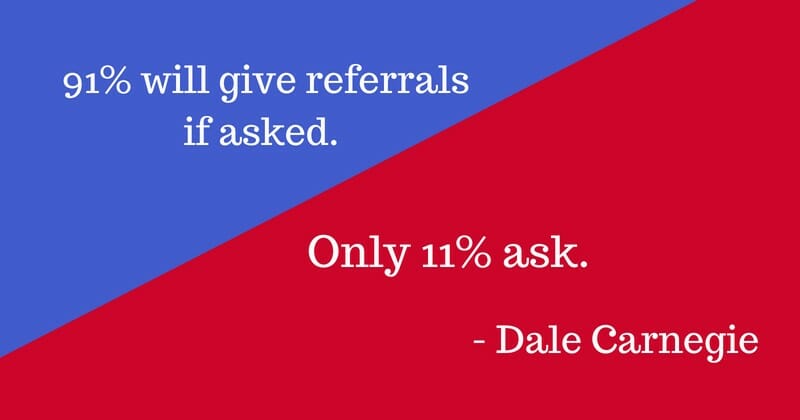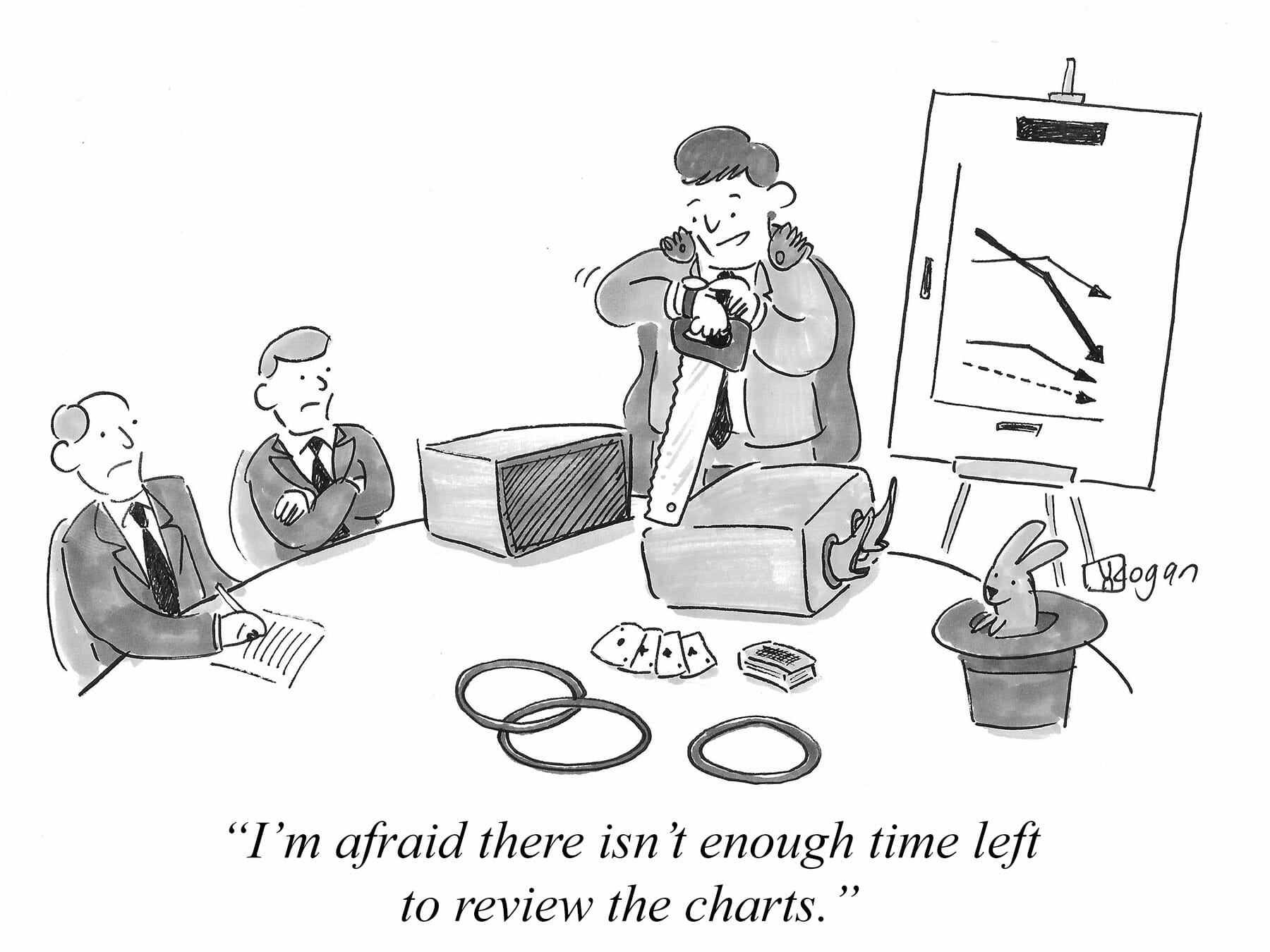How to Find and Hire a VP of Growth for Your Business
Lately, it seems like I can’t talk to anyone in my field without hearing one question: “How do I find a good VP of Growth?”
And I get it. Finding the right VP of Growth can mean the difference between a company that meets its goals and one that falls short again and again. It’s such a common problem that research by Lever suggests that it takes 192 applicants to recruit a single marketing hire – far more than are needed to fill a designer, engineer or data scientist role.
Fortunately, I’ve got plenty of experience in this area. So whether you’re trying to find a VP of Growth or fill any other related marketing or growth position, check out my tips below to optimize your recruitment process.
What Is a VP of Growth?
You can’t hire a great VP of Growth until you know exactly what one can do for you and your company. Essentially, a VP of Growth is someone who tries to make all your numbers go up and to the right:

That doesn’t just mean paid ads or SEO. A VP of Growth could specialize in optimizing your sales process, your products, your referral programs or your content. Basically, they’re using whatever tools and tactics they can to figure out how to grow a company faster.
Nick Soman, former Growth Lead at Gusto, shared what makes this role so important in an interview on Medium:
“Today [it’s] much easier to build a great product than a decade ago, and more companies are building more and more products on a daily basis. If your technology is not getting extremely better every day or your product is not creating network effects, you need to rely on your growth process as a differentiation factor.”
The interviewer, Matias Honorato, also noted that, at the time of his writing, 2,130 companies on AngelList were looking to fill a growth role. In competitive digital environments where even the tiniest increments of growth can mean the difference between success and failure, it’s easy to see why this function has become so critical to modern companies.
Learn More:
- How to Conduct Effective Interviews to Get the Best Hire
- How to Onboard New Hires
- Forced Hiring: An Amazingly Effective Way To Find The Best Hires
How to Find Your Next VP of Growth
Every company is different, which means that every recruitment process is different, and the requirements for every VP of Growth role will be different as well. With that in mind, here are a couple hiring approaches that have worked well for me and my friends. Choose the ones that make the most sense for your business.
Ask for Referrals
This sounds simple. It sounds boring. And it sounds lazy. But if you know anybody who’s connected in the tech and startup spaces, you ask for referrals. It’s one of the best ways to get new hires, no matter what, whether you’re looking for someone to cook for you or to become your new VP of Growth. But you’ll never know unless you ask for a referral:

Find Suitable Candidates
If you don’t know anyone who can make a referral for you, you can dig up candidates on your own. One of my favorite ways to do this is to go on LinkedIn, find my competitors and see who’s working for them that has a growth-specific title. Depending on what you find, you can extend your search to anyone who’s working in your space with a growth title, even if they aren’t employed by a direct competitor.
Once you’ve identified a few possibilities, send them a message, but keep it deliberately vague. Here’s an example that’s similar to what I like to send:
Hey [name],
Hope all is well. I just wanted to introduce myself. My name is Eric Siu and I’m with Single Grain, a digital marketing agency that helps great companies grow their revenues online.
I see that you’re currently working as a VP of Growth [or any other title]. Just out of curiosity, do you know anyone who would be interested in a VP of Growth position at my company?
Cheers,
Eric
You’ll notice that I’m not being too direct here. I’m not asking each person if they specifically want to come work for Single Grain. As a result, I tend to get one of two responses: candidates either refer me to interesting people, or they tell me that they’re interested in being considered themselves. Both are wins for me because either way, I get leads to possible candidates.
This strategy works for any job title, so don’t limit it to VP of Growth job searches. For example, Neil Patel has used this approach to fill sales roles at his company. Just by reaching out to candidates with similar titles at competing companies and asking them to make introductions, his team was able to fill three sales seats – more than they’d achieved with any other recruitment approach.
Learn More:
- Why Didier Elzinga Asks New Hires How He Can Help Them Get Their Next Job [podcast]
- 10 Tools to Monitor Your Competitors’ Growth and Hack Their Strategies
- 5 Things You Should Know Before Hiring a Content Marketing Agency
- How We Built the Growth Everywhere Podcast to 109,000 Listens per Month
Interviewing VP of Growth Candidates
So now you’ve got a few candidates lined up and you’re ready to start interviewing. But before you begin the process, take some time to plan the specific questions you’ll ask, as well as how you’ll evaluate responses.
One of the reasons this is so important is that candidates for growth positions tend to stretch the truth about their past accomplishments. It’s not necessarily malicious – everyone wants to sound good in an interview, right? But if you don’t figure out the right questions to weed out the candidates who didn’t really make an impact in their past positions, you risk bringing someone onto your team who’s all talk and no action.
With that in mind, here are some of my favorite questions to ask in VP of Growth interviews:
“Are you a guest contributor anywhere?”
Let me be clear: it’s not a deal-breaker for me if a VP of Growth candidate doesn’t contribute articles to industry websites. But it’s a huge bonus if they do, for a few different reasons:
- If I can read their articles, I can see how they’re thinking about different topics. Even better, I know that the information I find in their articles is what they truly believe, not just what they might be telling me to get a job.
- Having a presence on industry sites shows me that they understand how important thought leadership is to brands these days. Authority is playing a bigger and bigger role in digital marketing strategies, so if I see them building their own, I know they’re prepared to take on that aspect of growth.
- It shows me how well they communicate. It’s important to me that everyone we hire is able to write well. Even if you aren’t in a content creation role, you’re writing emails all the time. You’re communicating all the time. If you can’t articulate yourself through the written word or through content, you’re going to be behind other people – and you’re going to hold back the team.
“What would you do next?”
If an interview is going well, I’ll tell candidates about my business and ask them, “What would you do next?” I’ll even give them numbers and data points so that they can see where we want to wind up at the end of the year. Then, I listen carefully to their thought process on how they’d get the company there.
I’m not actually listening for them to tell me whether or not they can hit the goals I laid out. I just want to hear the approach they’d take and how they think. I don’t expect them to be able to come up with a finished strategy on the spot, but I do need to hear that they have enough expertise to be able to map out a quick plan on the fly that hits the same key priorities I’m thinking about.
One note I want to add here – you have to be careful not to take this question too far into the territory of turning into a homework assignment. Treat this question as a theoretical thought exercise to avoid running up against labor laws that require you to pay people for doing actual work for your company.
If you do decide you want to test work performance on a more formal level, HackerNoon suggests offering a paid skills test to be completed over a 1-2 week period:
“Depending on the time-available-to-hire, I suggest projects that tackle putting together a product release (even if it’s just a simple feature). You state the problem and let the applicants come up with a comprehensive solution, sans the actual product.”
“What’s your most impressive marketing win?”
One of my goals with this question is to better understand what they think is impressive. If they can’t call up specific metrics, that’s a big red flag. But scale matters, too. If they’re excited about 2X growth on a key metric when I’ve seen similar campaigns produce a 5X, 10X or even 20X lift, that tells me they may not be as effective in the role as I need them to be.
I also ask this question as a way to weed out candidates who are exaggerating the impact they had on growth in past positions. After they’ve shared their biggest wins, I’ll ask them to go deeper and tell me how they contributed specifically. It’s rare for any kind of meaningful growth to be achieved by a single person. If candidates can’t isolate their impact – or if they fail to recognize the important work done by their teammates – that’s a problem for me.

Consultant Greg Kogan points out that asking questions like these is especially important when interviewing candidates from large companies, whom he describes as being insulated from growth metrics by the layers of management above them.
He writes on his website:
“Their performance was measured by the amount of work completed, by their department’s performance, by distant downstream metrics (such as site traffic, blog readership or search keyword rankings), or even by how their boss thinks they’re doing. To early stage startups these are vanity metrics; they look great but don’t make a meaningful difference.”
Given how much it can cost to replace a bad hire, it’s critical that you nail down each candidate’s specific capabilities in the interview.
Obviously these aren’t the only questions I ask, but this should give you a good idea of how I’m approaching the interview process.
Learn More:
- [Growth Study] Slack: The Fastest Business App Growth in History
- 10 SaaS Business Lessons from $1B+ Unicorns (like Slack, Twilio, Lyft)
- Why Every Business Should Implement Sales Enablement
How to Land VP of Growth Jobs
Finally, if you’re on the other side of the fence as a VP of Growth who’s trying to land a new job, I want to leave you with a real-world example of how the kinds of referrals I described above happen.
I’m a big reader of online marketing articles, and I’m always looking to see who’s out there writing good stuff. A while back, I came across a great writer on GrowthHackers, whose name I’ll keep confidential out of respect for his privacy. I reached out and asked if he’d be interested in writing content for Single Grain. He agreed, and he wound up freelancing for us on the side while he was working a full-time job as a marketer.
Eventually, one of my friends needed to hire a marketing director, and guess who I referred to him? Later on, I even ended up referring him to a second job, and he took that one too – all off the back of a single piece of content.
If you’re serious about building a career in growth, you have to commit to building your profile in the industry. Writing guest articles isn’t the only way to do this, but, as I mentioned earlier, it’s a great way to show off not just your knowledge, but your communication skills as well. Apply the same growth hacking skills you’d use in a professional position to your personal brand if you’re serious about standing out.





